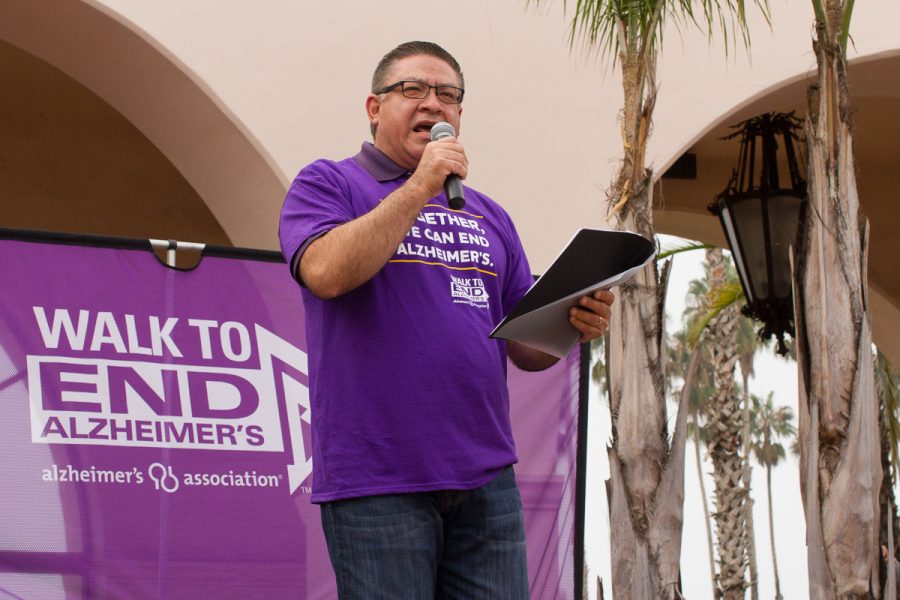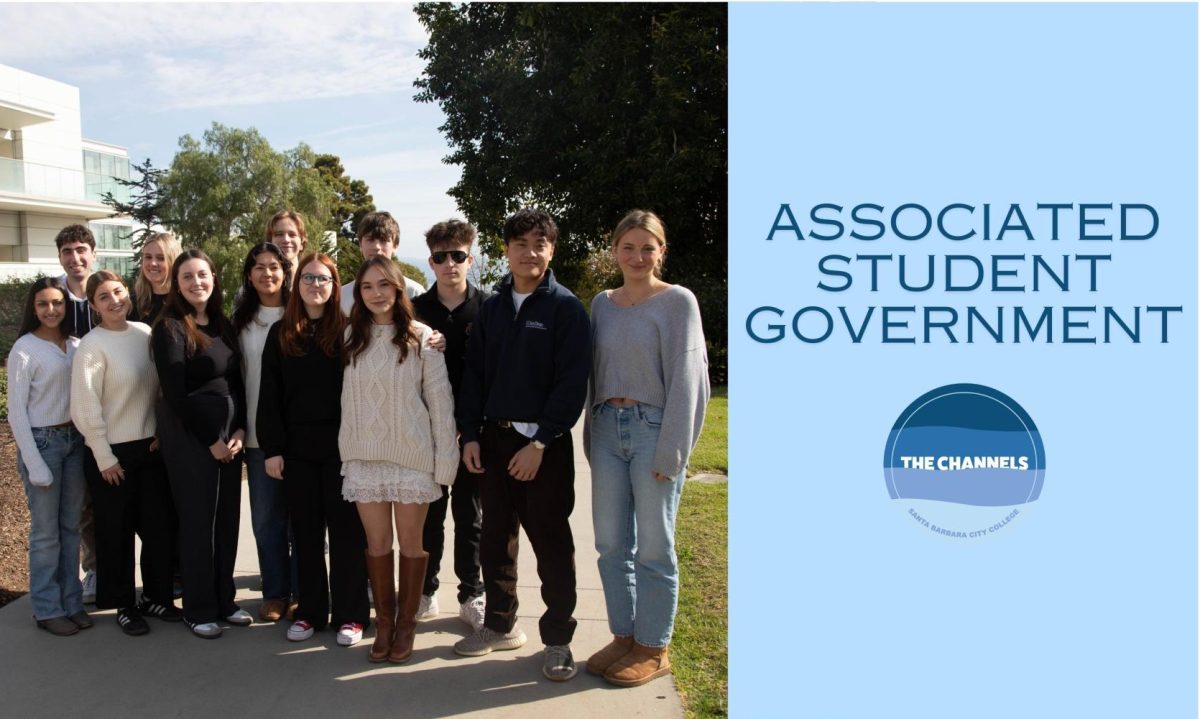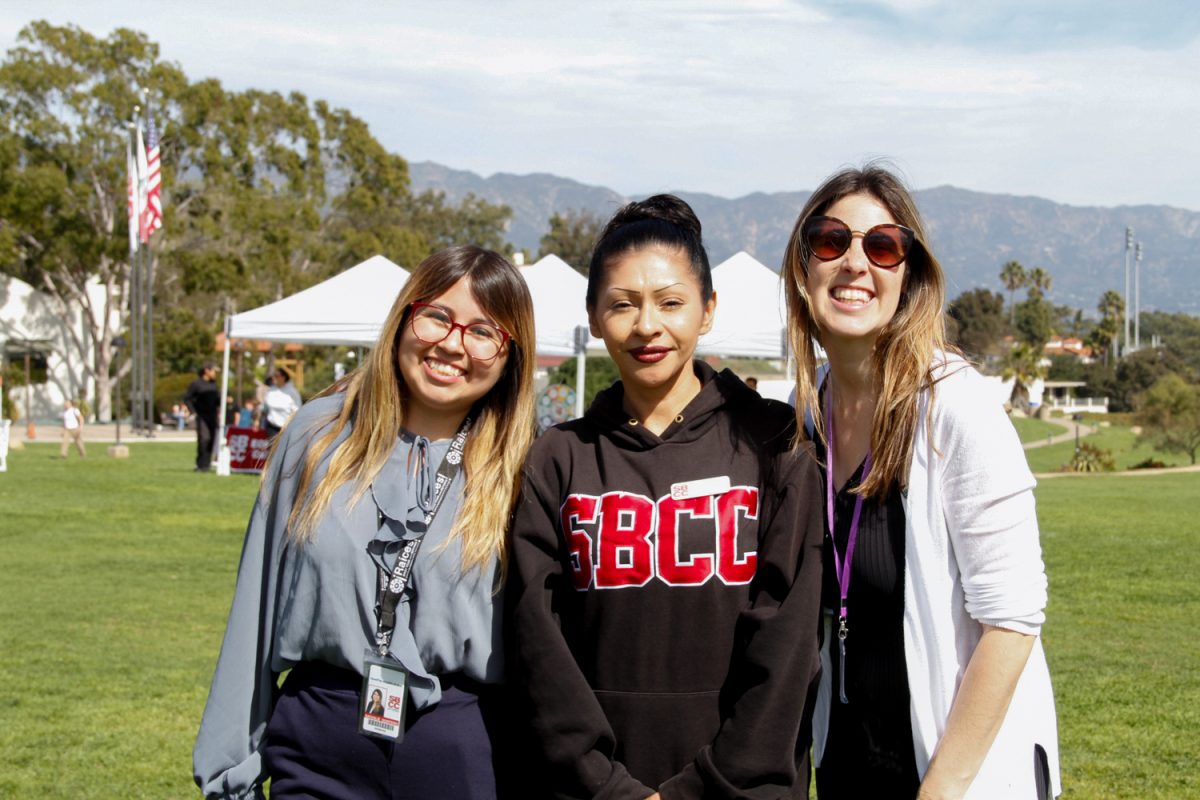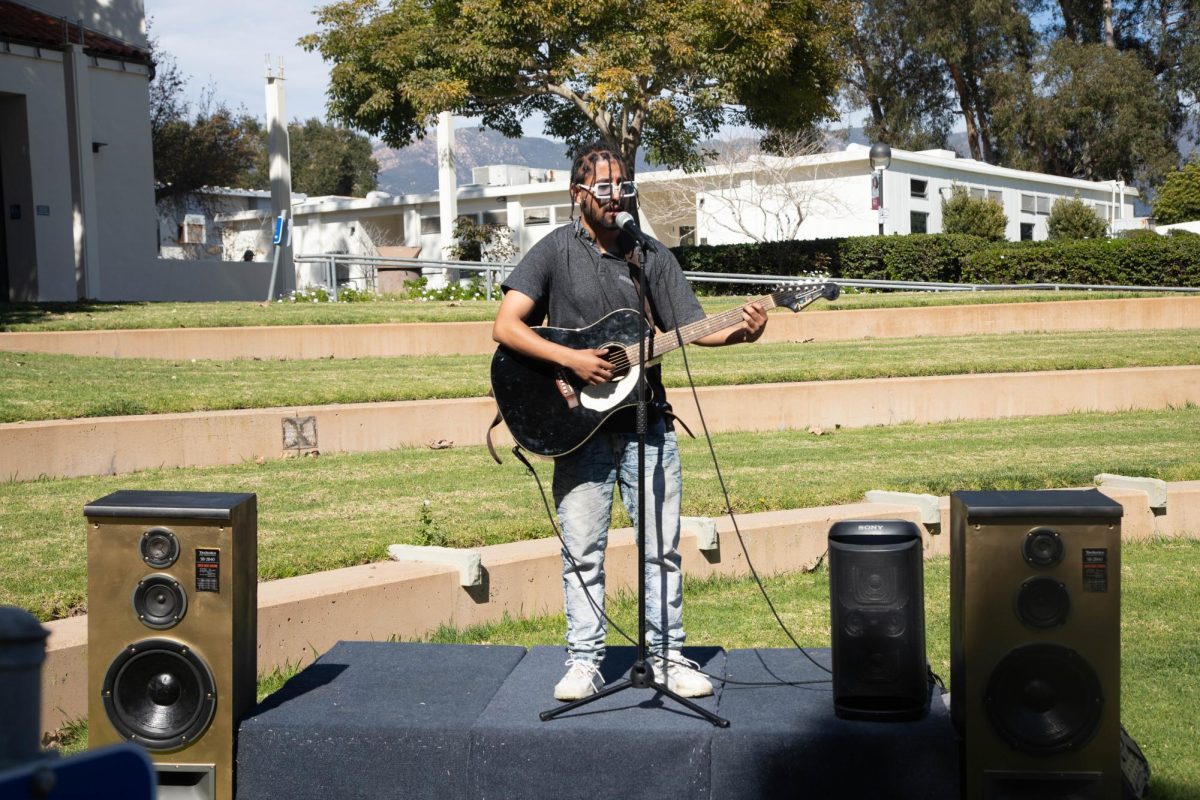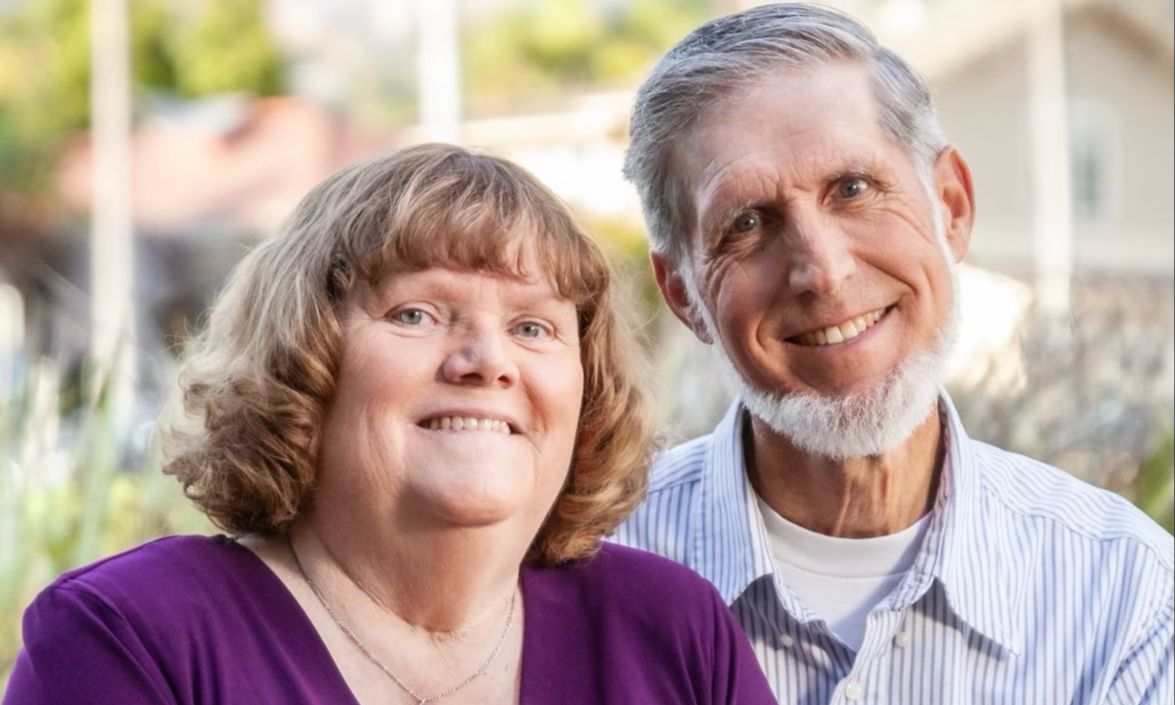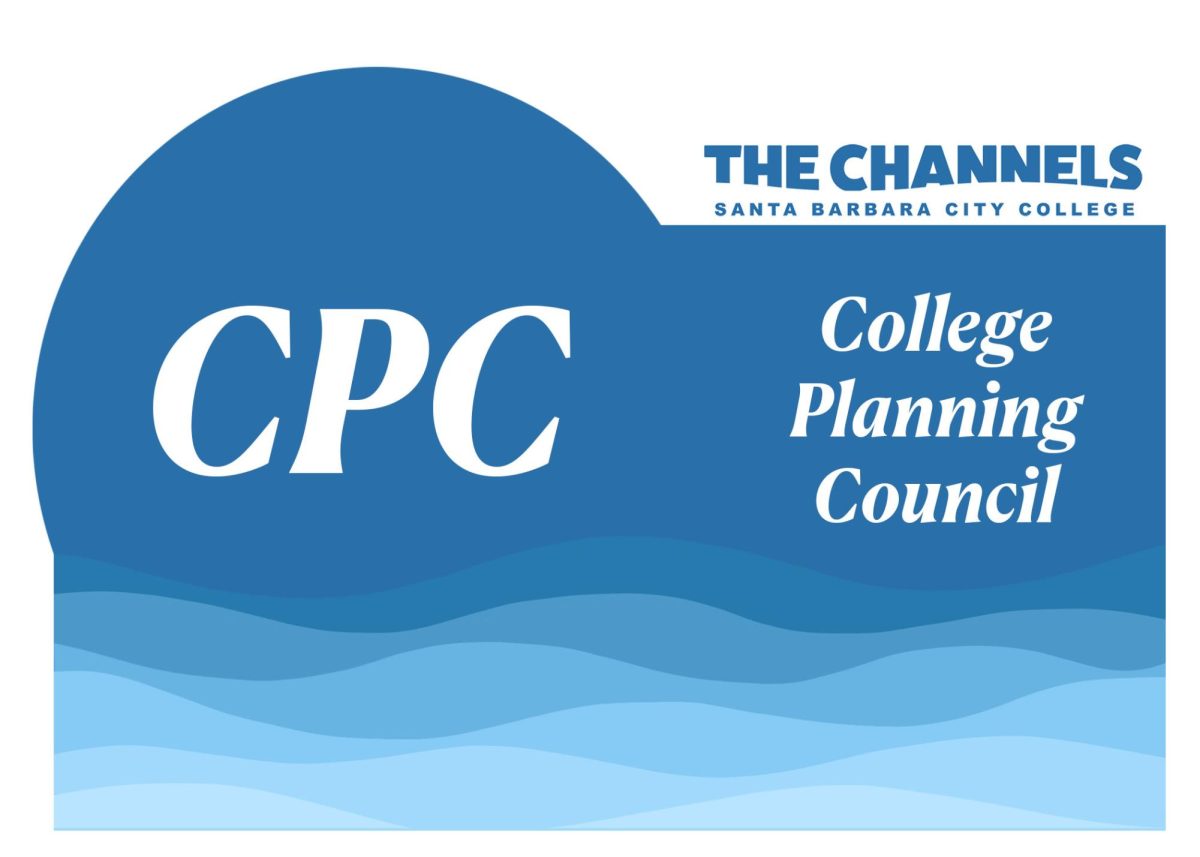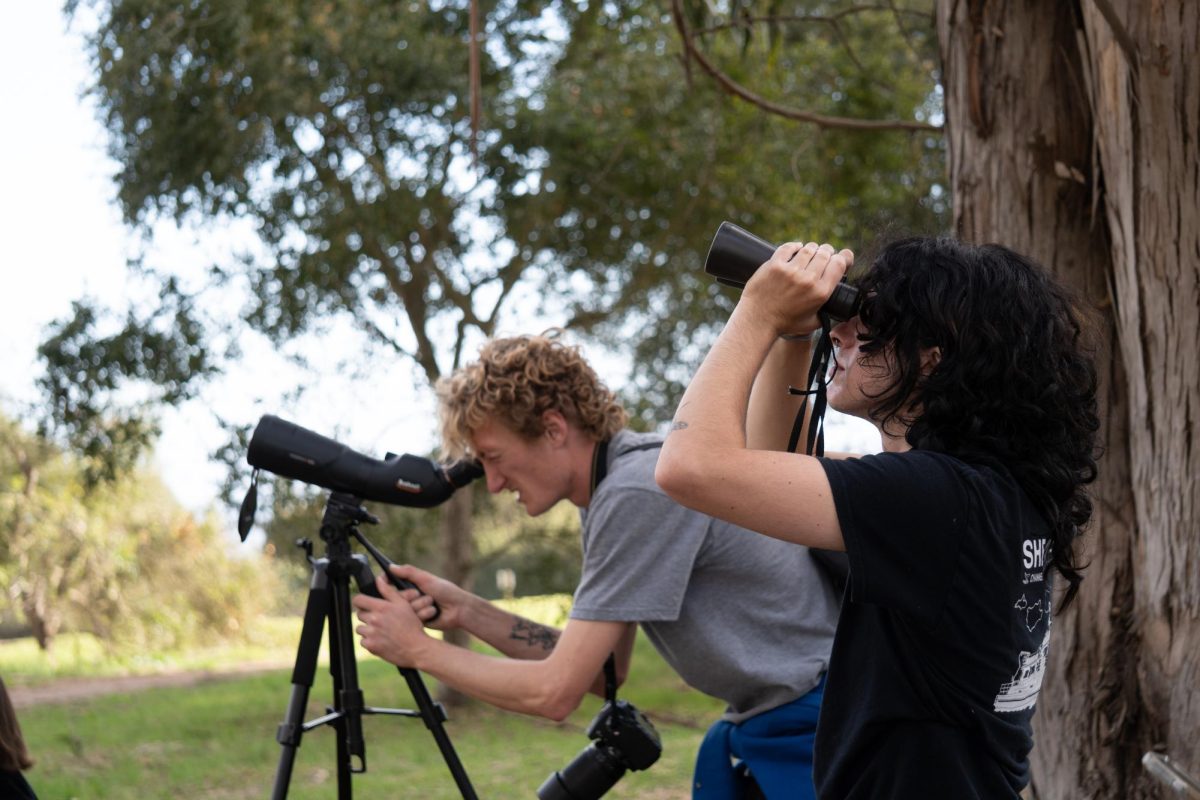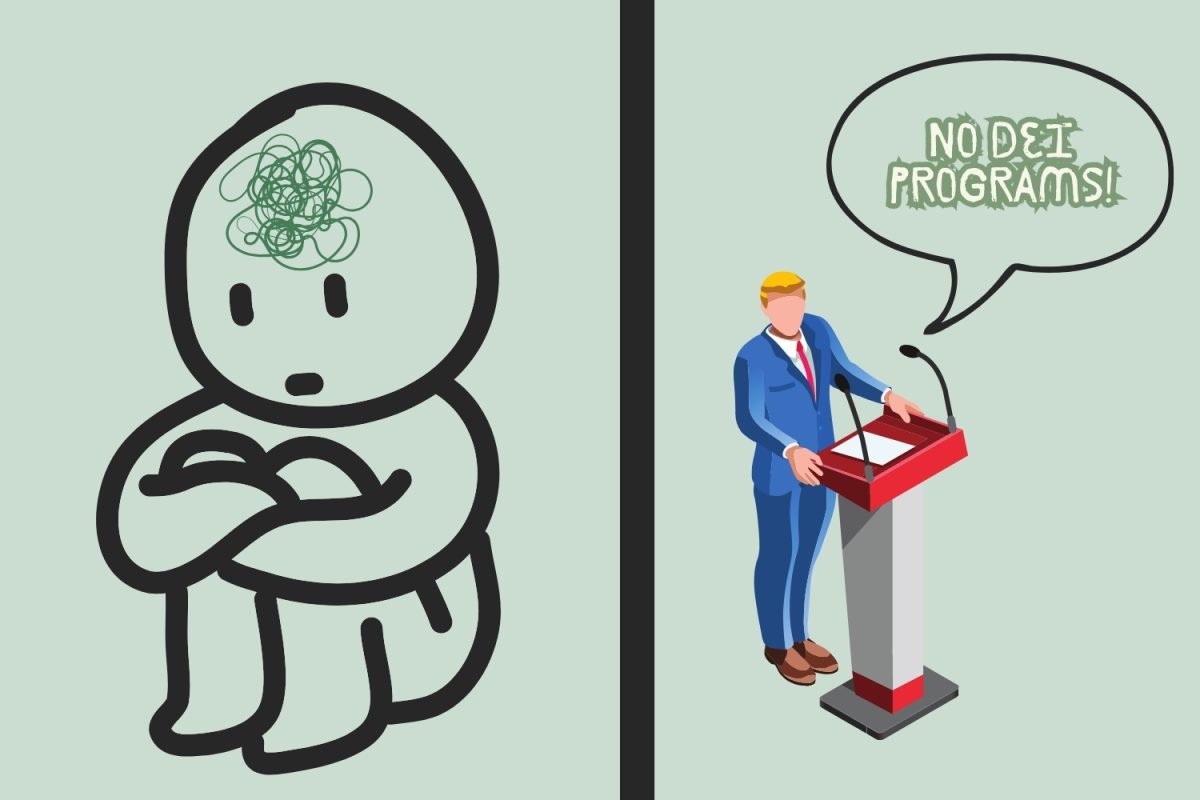On a misty morning in Santa Barbara, Phi Theta Kappa and a number of non-profit organizations walked together to raise money to end Alzheimer’s disease in effort to bring awareness to their community.
“We are demonstrating to other members of the community the importance of this issue,” said Phi Theta Kappa adviser Phyllisa Eisentraut. “It’s good already to have all these people involved but we also want to point out to people who are out on a nice Saturday morning that there are social issues that need attention.”
Roughly 700 walkers took part in the event “Walk to End Alzheimer’s,” which was organized by the Alzheimer’s Association. Participants walked a distance of 5 kilometers along the Cabrillo Boulevard, from East Beach to the Harbor and back.
The honors society joined forces with a several non-profits that are mainly concerned with the elderly. Before the start of the walk, participants met at The Fess Parker hotel, where there were booths to sell merchandise like t-shirts and key chains to raise money for Alzheimer’s research.
“We committed to fundraise $1,000 to get the booth,” said Madison, President of Phi Theta Kappa. “We thought it is a good idea to spread the word about Phi Theta Kappa and let the people know how Phi Theta Kappa is trying to give back to the community.”
The venue was filled with participants who belonged to different ages but shared the attitude towards ending Alzheimer’s.
“I have a cousin with Alzheimer’s so I figured we need to research it and raise money,” said Milo Street, one of the participants. “It is my first time doing this kind of thing.”
A lot of the participants were family members of victims of this malevolent disease.
“We are all going to be affected by this at one point,” said walker Suesan Paulitski, owner of an exercise studio who lost her father to Alzheimer’s last year.
“So we are raising awareness by walking,” she added. “Walking is something that takes an effort. It is challenging. So we are all making an effort to support people who suffer from this disease.”
Alzheimer’s has no current cure, but treatments for symptoms are available and research continues.
“We want our elderly to age with dignity and space. We hope that we will find a cure someday,” said Senator Hannah-Beth Jackson.
Mark Sanders, a Phi Theta Kappa advisor, pointed out that the group’s involvement is also meant to teach the Phi Theta Kappa’s leadership how to interact with organizations preoccupied with community service and how to approach them in order to raise money.
“We are trying to achieve our goal and help raise $1,000,” Sanders said. “This [Alzheimer’s Association] is another aid organization that Phi Theta Kappa can assist in giving back to the community.”


